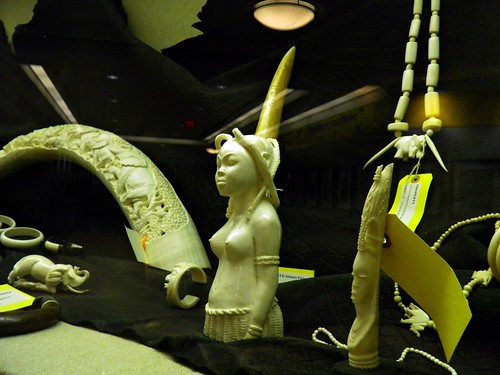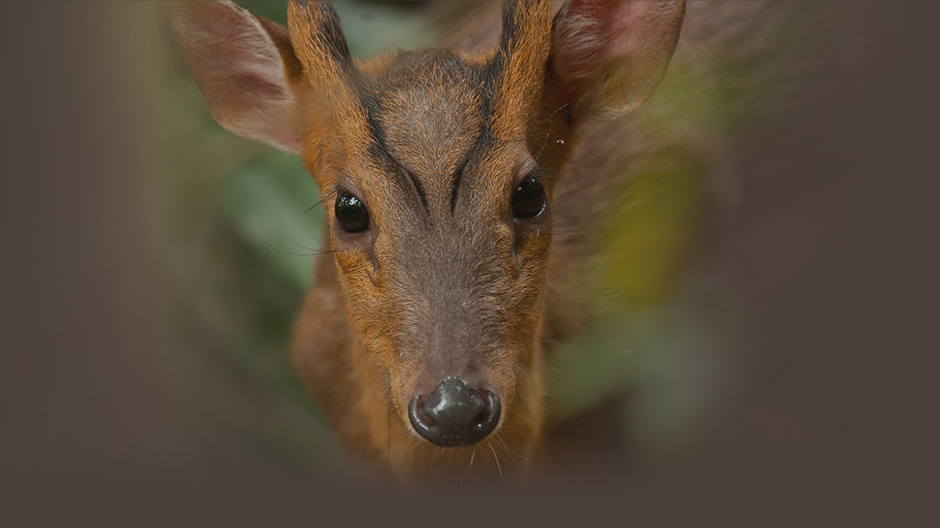共和黨籍紐澤西州州長 Chris Christie 5日簽署兩黨共識法案,將象牙和犀牛角製品的進口、銷售和購買入罪。繼6月立法的紐約州之後,紐澤西成為美國第二個禁止象牙和犀牛角走私的州。
此法規不但禁止紐澤西境內的象牙和犀牛角貿易,也包含嚴厲處分查獲之黑市貿易。Chris Christie說,「此法律將有助減少相關產業的犯罪活動,並保護族群受走私嚴重威脅的野生動物。」
初犯罰金1,000元或查獲製品價格的兩倍,看兩種罰金何者較高;累犯罰金5,000元或查獲製品價格的兩倍。查扣的象牙和犀牛角送往環境保護部門銷毀或捐給教育單位。
新法規更規定,象牙或犀牛角若出現在常見於銷售類似商品的零售或批發通路,就視為是有銷售意圖的「推定證據」。
力挺此法的民主黨參議員Raymond Lesniak說,「黑市貿易猖獗,每磅象牙原料價格高達1,500美元。光是非洲就屠殺了約35,000隻象,照這個速度,大象會在20年內滅絕。」Lesniak說,象牙走私量已創下新高,去年全球查扣超過41噸的非法象牙。
保育人士樂見新法產生。支持此法的生而自由基金會美國分會(Born Free USA)執行長Adam Roberts說,「紐澤西是相關議題的強力領導者。新法尤其具有重要意義,因為紐華克港是非法野生動物貿易的轉運站。」
紐約州在六月立法永久禁止大象象牙、猛獁象象牙和犀牛角銷售。
犀牛共有5個物種,全都受到盜獵威脅。非洲黑犀牛屬於極度瀕危,只剩下不到5000隻個體。印度和尼泊爾只剩3000隻獨角犀牛。東南亞只剩下幾百隻蘇門答臘犀牛和幾十隻爪哇犀牛。犀牛角成分是角蛋白,是一種類似指甲成分的物質,即使已有確切證據證實毫無療效,仍被當作傳統中藥使用。
New Jersey Governor Chris Christie, a Republican, Tuesday signed into law bipartisan legislation prohibiting the import, sale or purchase of any ivory or rhinoceros horn product.
The measure makes New Jersey the second state to ban ivory and rhino horn trafficking, following New York State, which took similar action in June.
The measure makes federal prohibitions applicable to the ivory and rhinoceros horn trade within New Jersey, and includes strict penalties for those caught dealing in the black market for these products.
“These stricter measures will help to reduce the amount of criminal activity that surrounds this industry while protecting wildlife populations that are already seriously threatened from this harmful practice.”said Governor Christie.
Ivory trafficking is at the highest rate ever recorded, Senator Lesniak said, with more than 41 tons of illegal ivory confiscated worldwide last year.
The bill was sponsored by State Senator Raymond Lesniak, a Democrat. “With raw ivory selling for approximately $1,500 a pound the black market trade is thriving,” he said. “An estimated 35,000 elephants are slaughtered in Africa alone. At this rate, elephants will be killed into extinction within 20 years.”
A first offense will be punishable by fine of $1,000 or double the value of the product, whichever is greater. Further offense would be punishable by a fine of $5,000 or double the product value. Upon conviction, the ivory or horn goes to the Department of Environmental Protection for destruction or donation to an educational institution.
The bill would treat the presence of ivory or a rhinoceros horn in a “retail or wholesale outlet commonly used for the buying or selling of similar products” as “presumptive evidence” of possession with intent to sell the product.
Environmentalists are pleased with the new law. Adam Roberts, chief executive of Born Free USA, which supported the bill, said, “New Jersey has emerged as a powerful leader on these issues. This new law is of particular importance because the port of Newark is a hub for illegal wildlife trade.”
In June, New York State passed a law placing permanent ban on the sale of elephant and mammoth ivory and rhino horn.
All five rhino species are at risk of poaching. Africa’s black rhinos are critically endangered, with a population of fewer than 5,000. There are only 3,000 one-horned rhinos remaining in India and Nepal. In Southeast Asia, a few hundred Sumatran rhinos and a few dozen Javan rhinos cling to survival. Their horns, made of keratin, a fingernail-like substance, are used in traditional Chinese medicine, despite conclusive evidence that they have no curative properties.
※ 全文及圖片詳見:ENS
 網站捷徑
網站捷徑





